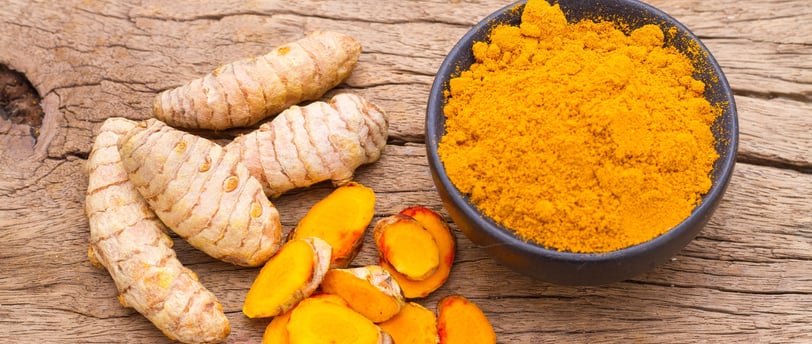The turmeric medicinal properties
Turmeric, or Curcuma longa, is a vibrant yellow spice used in traditional medicine for centuries. I
Alexandre YOUTA
11/29/20233 min read


Turmeric: Unlocking the Medicinal Properties
Turmeric, or Curcuma longa, is a vibrant yellow spice used in traditional medicine for centuries. It is native to Southeast Asia and is a member of the ginger family. Turmeric is not only a popular ingredient in cooking but is also renowned for its numerous health benefits. In this article, we will explore the medicinal properties of turmeric and how it can improve your overall well-being.
Historical Use of Turmeric
The use of turmeric dates back thousands of years. It has been an integral part of Ayurvedic medicine, a traditional Indian healing system, for its therapeutic properties. Turmeric was used to treat various ailments, including digestive disorders, skin conditions, and respiratory issues. It was also used as a natural remedy for pain relief and to promote overall health and longevity.
Chemical Composition of Turmeric
The key component responsible for turmeric's medicinal properties is curcumin. Curcumin is a polyphenol compound that gives turmeric its vibrant yellow colour. It is a potent antioxidant and has anti-inflammatory properties. However, curcumin alone is not easily absorbed by the body. To enhance its bioavailability, it is often consumed with black pepper or combined with fats.
Health Benefits of Turmeric
Anti-inflammatory Properties
One of the most well-known benefits of turmeric is its anti-inflammatory properties. Chronic inflammation is linked to various diseases, including heart disease, cancer, and autoimmune disorders. Curcumin in turmeric helps reduce inflammation by inhibiting the activity of inflammatory enzymes and molecules in the body.
Antioxidant Properties
Turmeric is a powerful antioxidant that helps protect the body against oxidative stress and damage caused by free radicals. Oxidative stress is associated with ageing, chronic diseases, and cellular damage. The antioxidants in turmeric neutralize free radicals and help maintain cellular health.
Pain Relief
Turmeric has been used for centuries as a natural pain reliever. It can help alleviate pain and inflammation associated with arthritis, joint pain, and muscle soreness. Curcumin in turmeric acts as a natural analgesic and can provide relief without the side effects often associated with conventional pain medications.
Digestive Health
Turmeric has been traditionally used to support digestive health. It aids in digestion by stimulating the production of bile, which helps break down fats and aids in the absorption of nutrients. Turmeric also has antimicrobial properties that can help combat harmful bacteria in the digestive system.
Heart Health
Studies have shown that turmeric may have beneficial effects on heart health. It helps improve the function of blood vessels, reduces cholesterol levels, and prevents the formation of blood clots. These effects contribute to a lower risk of heart disease and stroke.
Brain Health
Curcumin in turmeric has been found to have neuroprotective properties. It can cross the blood-brain barrier and has been shown to help reduce the risk of neurodegenerative diseases such as Alzheimer's and Parkinson's. Turmeric also promotes the production of brain-derived neurotrophic factor (BDNF), a protein that supports the growth and survival of brain cells.
Skin Health
Turmeric is often used in skincare products for its beneficial effects on the skin. It has anti-inflammatory and antioxidant properties that can help reduce acne, soothe skin irritations, and promote a healthy complexion. Turmeric can also help lighten dark spots and improve the skin's overall appearance.
Cancer Prevention
Several studies have suggested that turmeric may have anticancer properties. Curcumin in turmeric has been found to inhibit the growth of cancer cells and prevent the spread of tumours. It can also enhance the effectiveness of chemotherapy and radiation therapy while reducing their side effects.
Diabetes Management
Turmeric may help manage diabetes by improving insulin sensitivity and reducing blood sugar levels. It can also help prevent complications associated with diabetes, such as cardiovascular disease and kidney damage. However, it is essential to consult with a healthcare professional before incorporating turmeric into your diabetes management plan.
Weight Management
Turmeric may aid in weight management by boosting metabolism and reducing inflammation. It can help regulate blood sugar levels and curb cravings, benefitting those trying to lose or maintain a healthy weight.
How to Incorporate Turmeric into Your Diet
There are various ways to incorporate turmeric into your diet and enjoy its health benefits. Add it to curries, soups, stews, and stir-fries for vibrant colour and flavour. Turmeric can also be used to make golden milk, a popular Ayurvedic beverage, by combining it with milk, honey, and spices. Additionally, turmeric supplements are available for those who prefer a more concentrated form.
Precautions and Side Effects of Turmeric
While turmeric is generally safe for most people when consumed in moderation, it may cause side effects in some individuals. High turmeric or curcumin supplements may cause gastrointestinal issues such as stomach upset, diarrhoea, or nausea. Turmeric may also interact with certain medications, so it is essential to consult with a healthcare professional before starting any new supplements.
Conclusion
Turmeric is a powerful spice with a wide range of medicinal properties. From its anti-inflammatory and antioxidant effects to its potential in preventing chronic diseases, turmeric can be a valuable addition to your daily routine. Whether you incorporate it into your cooking or opt for turmeric supplements, harnessing the benefits of this golden spice can contribute to your overall health and well-being.
To invest in this sector
contact
Alexandre YOUTA
International Financial Expert
youtaalexandre@gmail.com
